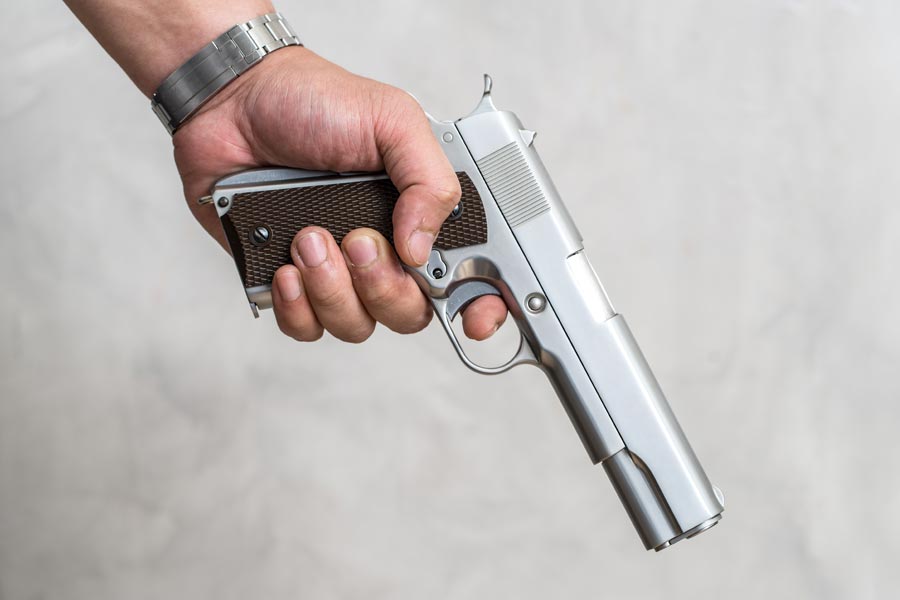September 16, 2019
Three Recent Efforts to Reduce Gun Violence

Businesses where a shooting occurs risk not only potential lawsuits from innocent customers and bystanders but they will also very likely suffer some business slowdown from loss of reputation.
Gun violence affects all aspects of society, especially businesses, such as the Walmart in El Paso, Texas and the merchants in the Oregon District of Dayton, Ohio, where mass shootings recently took place.
Whether or not federal legislation requiring more stringent background checks or red flag laws that allow guns to be taken away from people deemed suicidal or a threat are enacted, three recent developments will likely have an impact on the controversy.
Families of Sandy Hook Children Can Sue Gun Manufacturer.
In March the Connecticut Supreme Court reinstated a wrongful death lawsuit brought against gun maker Remington Outdoor Co. for manufacturing the rifle used in the 2012 mass shooting at Sandy Hook Elementary School in Newtown, Conn.
Before the suit was reinstated it had been dismissed by a lower court because of a 2005 federal law, the Protection of Lawful Commerce in Arms Act (PLCAA), which shields gun manufacturers from liability when firearms they manufacture are used in crimes, except when the guns are wrongfully sold or marketed.
The families of the children killed at Sandy Hook argued that the gun used by the killer was a weapon of war wrongfully marketed to civilians and thus not protected by the PLCAA.
Remington has asked the U.S. Supreme Court to overturn the ruling, saying that the Connecticut Supreme Court interpreted the exemption too broadly.
Walmart Provides Mandatory Employee Training to Mitigate Casualties of Shootings
After the shooting of 58 people at a music festival in Las Vegas, Walmart began implementing its “Active Shooter” plan, which is said to be mandatory now at all Walmart stores. All employees are supposed to complete the program during orientation when they come on board and get reacquainted with it four times per year.
A few days before the mass shooting that killed 20 people at a Walmart in El Paso, employees at a Walmart in Southaven, Mississippi, acted in accordance with the “Active Shooter” plan and quickly sought to mitigate casualties when a disgruntled employee killed two co-workers and a policeman, by guiding associates and customers to the right exits and out of danger.
“I feel confident in saying that it did (help) in Southaven,” said Walmart spokesman Randy Hargrove in a phone interview with Reuters News Service.
It’s not clear whether Walmart’s “Active Shooter” efforts reduced casualties in the El Paso incident.
Stricter Gun Laws Linked to Lower Risk of Gun Violence to Children.
According to a recent study that appeared in the September 2019 issue of the journal Pediatrics, children who live in states with stricter gun laws are less likely to die from gun violence.
The survey noted that states with strict gun control laws had four percent fewer pediatric deaths, and states with universal background checks for firearm purchases in place for at least five years had a 35 percent lower risk.
According to researchers quoted in the study, stricter gun laws have been shown to lower overall death rates in adults, as states with more laws have fewer homicides and suicides than those with fewer. A range of laws, including waiting periods to get firearms, universal background checks, restrictions on carrying guns in public and mandated gun locks have all been linked to lower suicide rates, according to statements made in the study.
“Firearm-related injuries are the second-leading cause of pediatric death in the U.S., yet there is significant variation in firearm legislation at the state level,” said Monika Goyal, director of research in emergency medicine at Children’s National in Washington. “In our study, we found that states with stricter firearm legislation, specifically legislation requiring universal background checks for firearm purchase, had lower firearm-related mortality rates in children.” The National Rifle Association has disputed the methodology and conclusions of the study.
